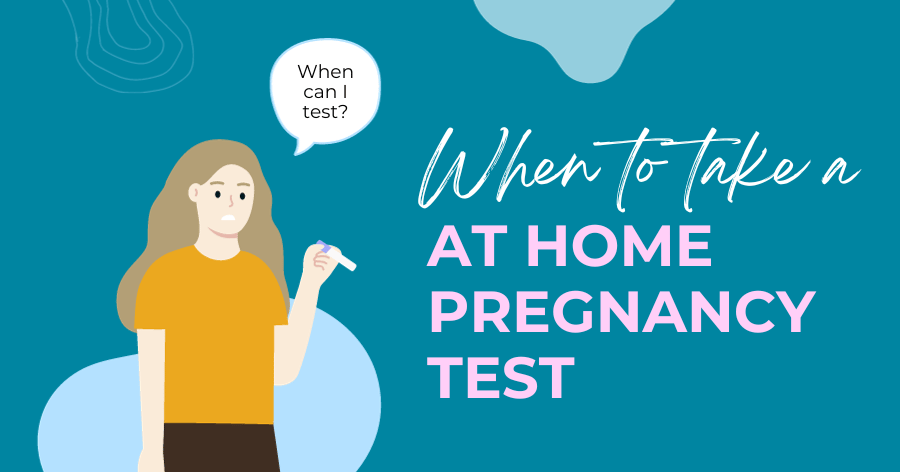
You can use most pregnancy tests from the first day of a missed period. If you don’t know when your next period is due, do the test at least 21 days after you last had unprotected sex.
If you are wanting to test earlier or are not sure when to test, use our online when to take a pregnancy test calculator.
How Pregnancy Tests Work
Pregnancy tests work by measuring or detecting the level of human chorionic gonadotrophin (hCG) in a woman’s urine or blood.
hCG is a hormone released by your placenta when you are pregnant. It appears shortly after the embryo attaches to the wall of the uterus.
At home pregnancy tests are generally urine sticks, which detect if hCG is present in urine.
A pregnancy blood test detects if hCG is present in the blood. A doctor will generally not order a blood test until you have missed your period.
Two Types of Home Pregnancy Tests
There are two main types of home pregnancy tests – an early pregnancy test and a regular pregnancy test.
- Early Tests: Early home pregnancy test are more sensitive and can detect lower levels of hCG (human chorionic gonadotropin).
- Regular Tests: These are effective from the day of the missed period.
Sensitivity of the Test
Expressed in mIU/ml, sensitivity indicates the range of hCG the test can detect. Lower mIU/ml tests are more sensitive and suitable for early testing.
Individual Menstrual Cycle
Knowing the average length of your menstrual cycle and the date of ovulation can help determine the best time for testing.
Recommended Times for Testing
Early Home Pregnancy Tests:
- As early as 9 to 11 days after ovulation (9dpo – 11dpo).
- Up to 5 days before the expected period.
Regular Home Pregnancy Tests:
- From 14 to 15 days after ovulation (14dpo – 15dpo).
- From the day of your expected period or soon after.
Best Time for Early Detection
Using Early Tests:
Early pregnancy tests clearly indicate on the packing how many days after ovulation or days before your expected period when you can test.
The earliest we have found is 8 days after ovulation (8dpo).
Note: If an early pregnancy test shows a positive result, it is generally accurate, but a negative result may be unreliable due to low hCG levels giving a “false negative.” If you are unsure, test on the day of your expected period or a couple of days after.
Best Time to use Early Tests
- 12 to 13 days after ovulation (12dpo – 13dpo).
- 1 to 2 days before your expected period for a balance of early detection and accuracy.
Notes
- Positive Result: Indicates the presence of hCG. Even a faint line or faint positive is a positive result.
- DPO (Days Past Ovulation): A useful measure for timing the test and observing potential pregnancy symptoms.